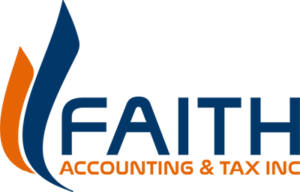Tax reform is one of the most challenging processes that may influence the economy and affect companies and people. Since the Tax Cuts and Jobs Act (TCJA) has a sunset date of 2025, companies are now in a state of confusion as to their future tax obligations. This blog post will give an insight on the important aspects of tax reform and what business should expect.
What is Tax Reform?
Tax reform, therefore, refers to the act of altering the tax laws of a country. This can include shifts in tax rates, deductions, credits or other provisions of the tax code. Tax reform can be carried out for different objectives, such as getting more money for the government’s coffers, boosting the economy, or making the tax system more efficient and equitable.
The Tax Cuts and Jobs Act (TCJA)
The TCJA was a tax reform legislation that was enacted in 2017. Some of the changes that the TCJA brought include; The TCJA brought some changes to the tax rates where business and individual tax rates were reduced. The TCJA is currently scheduled to expire in 2025, and thus, these tax reductions will not be permanent.
What Does the Expiration of the TCJA Mean for Businesses?
The TCJA is set to expire soon and this could mean that businesses are going to be subjected to much higher taxes. This is so because the tax cuts that were implemented in 2017 are set to expire in 2025. If these tax cuts are not renewed, then the taxes for businesses will rise.
Unifying Data for Global Tax Compliance
BEPS Pillar Two is changing the global tax system and requires extreme detail and accuracy of information. Tax departments face challenges managing data from disparate systems such as ERPs, tax systems, and others. Organizations need a strong foundation of data to compute deferred tax assets and liabilities, classify tax credits, and comply with the requirements. This includes key data elements, the consolidation of multiple systems, and data accuracy to address the challenges of the new tax system.
How Can Businesses Prepare for Tax Reform?
Here are several things that businesses can do to prepare for tax reform: First, it is necessary to track the amendments to existing tax legislation and the adoption of new legal acts. This can be achieved by purchasing newspapers and magazines that specialize in tax issues or by attending tax conferences and online conferences.
Second, firms should consider their tax status and find out where they can reduce their taxes. This may force clients to change their business models or take advantage of the various tax deductions and credits. Finally, it is crucial that companies develop a plan for approaching tax reform. This plan should also show how the business will finance any tax increases and how the business will respond to changes in taxation policies.
Tired of dealing with your taxes and accounting?
Faith Accounting & Tax Inc. can help. It is a registered Professional Accountant firm that offers a variety of services, including tax solutions, bookkeeping, accounting services, and consultancy. It provides professional, high-quality services to customers in Edmonton and surrounding areas. So, what are you waiting for? Contact them today for a free consultation!






